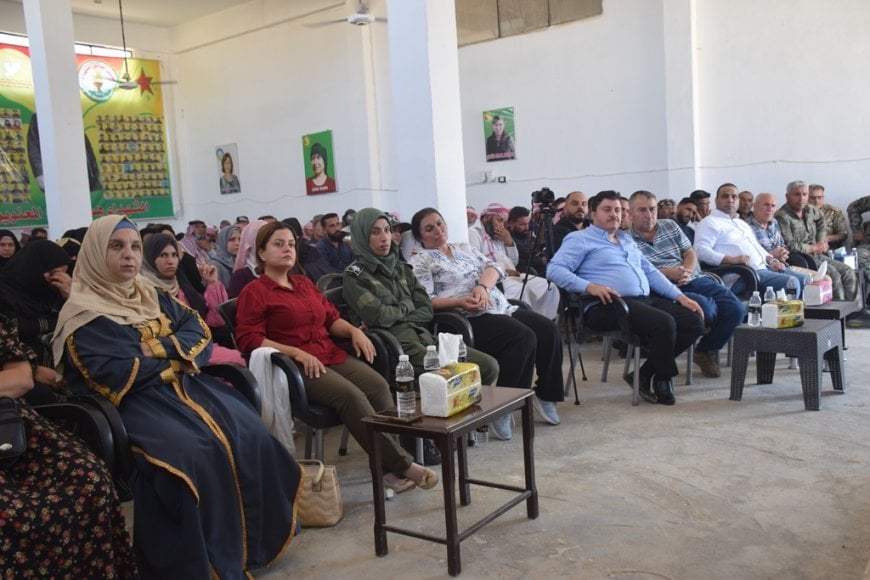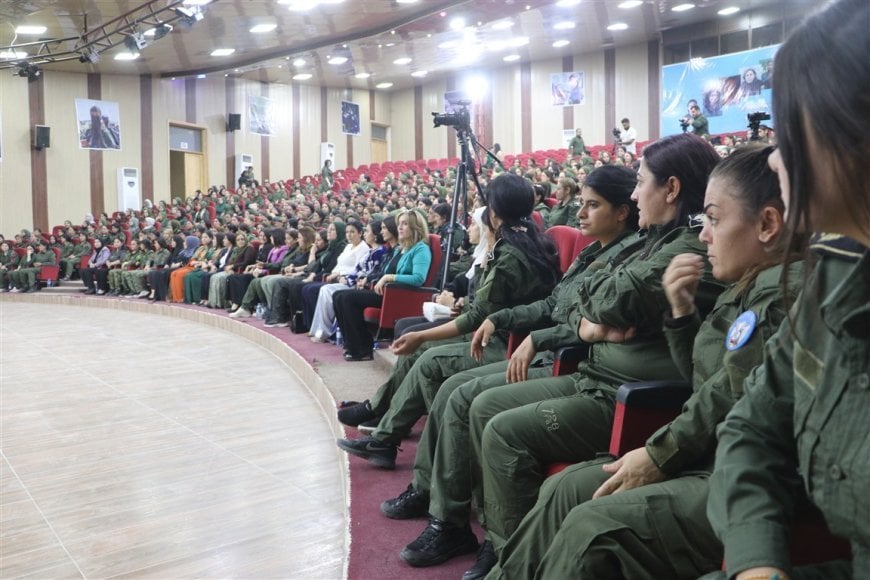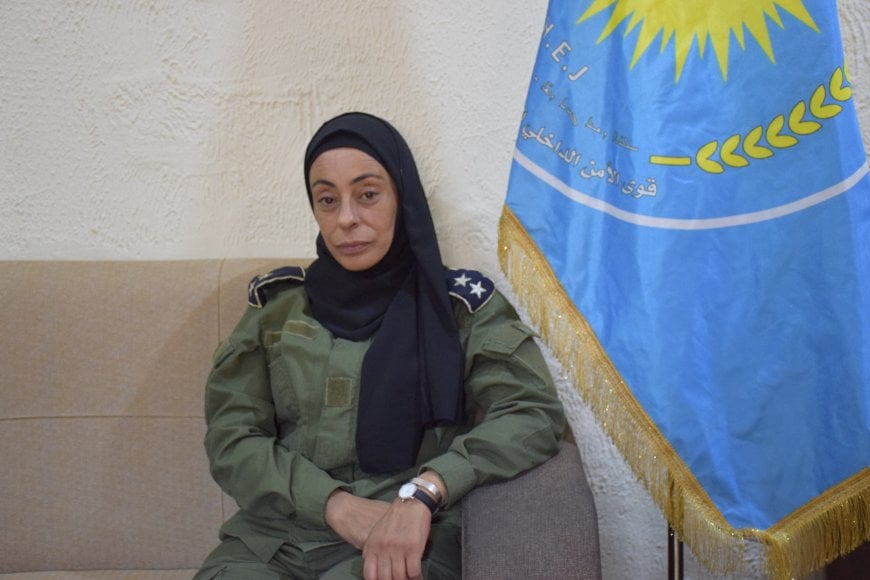Women are writing new chapters of success after eight years of continuous struggle in Raqqa. Today, women are taking the lead in communes, councils, and institutions, actively participating in areas of protection, security, and politics. Their testimonies confirm that what has been achieved in North and East Syria should serve as a launching point for a nationwide women’s revolution across the entire country.
On the eighth anniversary of Raqqa’s liberation from ISIS occupation, marked on October 20, 2017, the voices of women from the city shed light on the profound transformations that have reshaped women’s lives from marginalization and isolation to active presence and decision-making power.
The story of Maryam Ibrahim, who transitioned from a traditional housewife to a political leader, stands as a powerful example of women’s rise in Raqqa and their determination to build a more democratic and balanced society.
Women’s Struggle in Raqqa

In an exclusive interview, Maryam Ibrahim, now Co-Chair of the Committee for Social Affairs and Laborers in the Autonomous Administration of North and East Syria, spoke about the journey of women’s struggle in Raqqa beginning under the weight of restrictive customs and traditions, passing through the darkest era under ISIS rule, and culminating in liberation and active engagement in politics and governance within the institutions of the Autonomous Administration.
“For many years, women in Raqqa suffered from marginalization and oppression. But they managed to turn pain into strength, and fear into willpower. The time under ISIS was a dark period in every sense of the word. Women were stripped of their most basic rights. But we emerged from that darkness to lead an unprecedented historical awakening.”
She continued: “Liberation wasn’t just from ISIS, but also from patriarchal traditions that restricted women’s movement and blocked their participation in public life. Today, women in North and East Syria aren’t just part of the administration they’re partners in political decision-making, and they’re demanding full representation in the new Syrian constitution.”
“What Has Been Achieved Must Inspire a Nationwide Women’s Revolution”
Maryam Ibrahim sees the transformation in North and East Syria as a model to be replicated across the country: “After 60 years of marginalization, injustice, and servitude, it’s time for a comprehensive Syrian women’s awakening. What we’ve achieved in North and East Syria should be the starting point of a nationwide women’s revolution.”
She added: “I personally moved from being a simple woman whose only role was raising children at home, to an administrator in the Autonomous Administration, and then a delegate advocating for the rights of all Syrian peoples. This leap wasn’t easy, but it proves that change is possible when there is the will.”
She concluded her message with a call to all Syrian women: “Don’t wait for anyone to give you your rights—take them. The historical opportunity is in our hands today, and a woman who doesn’t assert her presence will not find anyone who grants it to her.”
“Years of Struggle and Awareness-Raising”

Jihan Mustafa, co-chair of a commune within the Ahmad Al-Shaaban People’s Council in Raqqa, confirmed that women now play a pivotal role in community and administrative work thanks to years of activism and awareness campaigns, particularly within communes, which are the foundational cells of social organization.
“I’ve been working in the commune for three years. We’ve faced many challenges, especially the initial lack of awareness among neighborhood residents about the commune’s role. But over time, through regular meetings and awareness sessions, perceptions changed, and the work became smoother and more collaborative.




